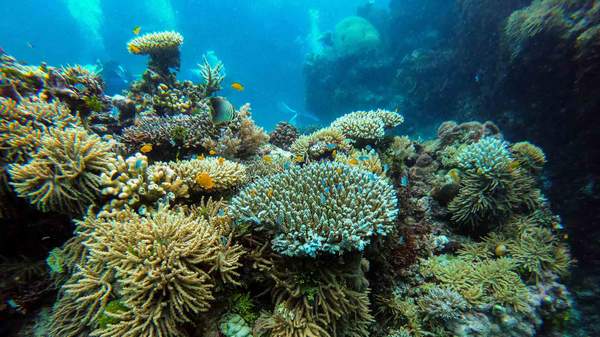Overview
When the UNESCO's World Heritage Committee sends some attention Australia's way, it often comes bearing good news. Back in 2019, it added the stunning Budj Bim Cultural Landscape to the World Heritage List, for instance. The body has also given Kakadu National Park, K'gari, the Tasmanian wilderness, the Greater Blue Mountains area, the Sydney Opera House, and the Royal Exhibition Building and Carlton Gardens the same status, too — and, among 20 Aussie places that've earned a spot on the list, the Great Barrier Reef as well.
At the moment, the organisation has turned its focus to the Great Barrier Reef again. This time, though, it's doing something other than highlighting its splendours. In a new report by the offshoot of the United Nations Educational, Scientific and Cultural Organisation, the WHC has recommended that the coral reef system off the coast of Queensland should be added to the list of world heritage sites that are in danger.
Explaining its rationale, the WHC said that "the long-term outlook for the ecosystem of the property has further deteriorated from poor to very poor" since 2015, and that it has "suffered significantly from coral bleaching events in 2016, 2017 and most recently in 2020, as a result of global warming." It noted that in the past five years, "both the current condition and the long-term outlook for the property have deteriorated. Therefore, there is no possible doubt that the property is facing ascertained danger."
The Australian and Queensland governments have a Great Barrier Reef policy — the Reef 2050 Plan — which outlines how they're working to protect and manage the reef until the middle of this century. But the WHC noted that so far "progress has been insufficient in meeting key targets." It also stated that the plan "requires stronger and clearer commitments, in particular towards urgently countering the effects of climate change, but also towards accelerating water quality improvement and land management measures. The widespread effects of the consecutive coral bleaching events further add to the significant concerns regarding the future of the property."
Tourism and Events Queensland
The Guardian reports that if the recommendation to place the Great Barrier Reef on the in danger list goes ahead, Australia will be a pioneer in all the wrong ways — because it'll mark the first time that a natural world heritage site has been classed as "in danger" primarily due to climate change.
UNESCO has asked Australia to work with the WHC to "address the threat posed to the property by climate change and determine a pathway for accelerated actions in other areas affecting the conservation of the property"; however, Federal Minister for the Environment Sussan Ley has said that the country will challenge the draft reef recommendation.
"I agree that global climate change is the single biggest threat to the world's reefs but it is wrong, in our view, to single out the best managed reef in the world for an 'in danger' listing," the Minister said in a statement.
To read the full UNESCO World Heritage Committee report head to the UNESCO website.
